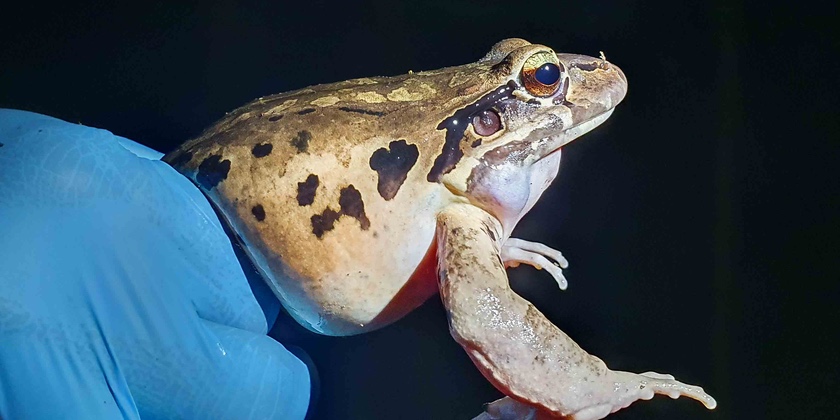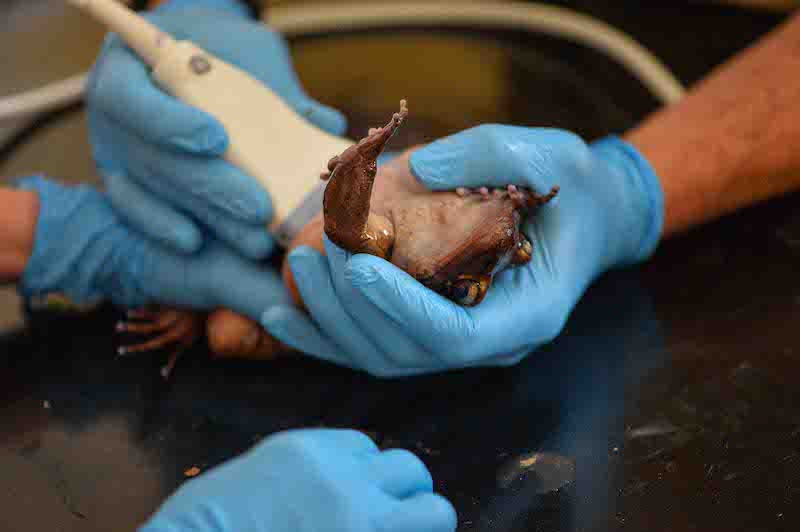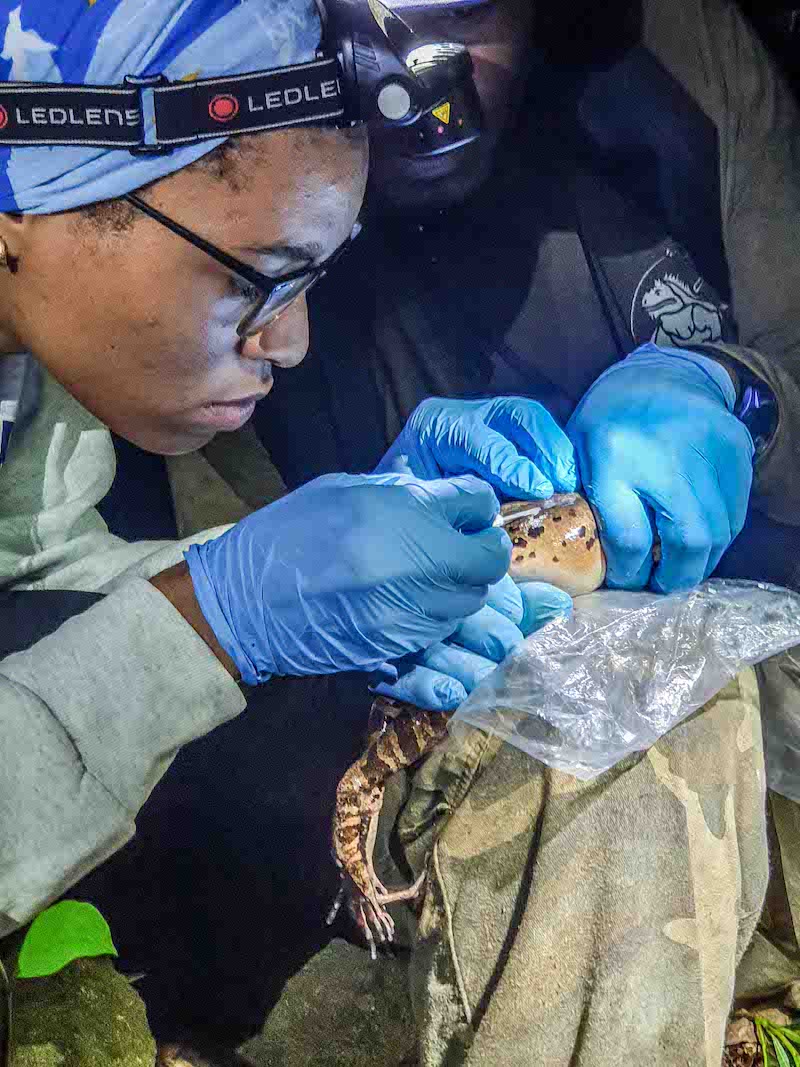Chester Zoo sounds alarm as one of world’s largest frogs becomes virtually extinct

Conservationists at Chester Zoo have spoken out as one of world’s largest frogs becomes virtually extinct.
New surveys of the critically endangered mountain chicken frog, one of the world’s largest frogs, suggests fewer than 50 remain in the wild, highlighting the need for urgent action to save the species from extinction.
The island of Dominica is now the only home to the last wild population of mountain chicken frogs after the species was wiped out from five other Caribbean islands.
Recent work carried out by a team of global conservationists, including amphibian experts from Chester Zoo, along with government representatives and NGOs, found only 23 frogs living on the island of Dominica, two of which were found dead on the road.
Jeanelle Brisbane, speaking on behalf of the Mountain Chicken Recovery Programme (MCRP), said: “The charismatic male calls of the mountain chicken frog once reverberated around the rainforests of Dominica at night — we want to bring this sound back to our island, for our people.
“It’s devastating that our next generation on the island may never hear this iconic soundscape which defines our island.”

The species suffered a 99% population loss over the last 20 years due to the arrival of the deadly chytrid fungus: a disease which has caused drastic declines in around 500 frog species worldwide and conservationists have no way of removing it from the environment in the wild.
At almost 1kg — as much as a bag of sugar — the mountain chicken frog is one of the world’s largest amphibians, weighing over 30 times more than the UK’s most common frog.
Kieran Richardson, Curatorial Assistant for Ectotherms at Chester Zoo and responsible for coordinating the conservation breeding program for the species across the whole of Europe, said: “This is one of the most threatened amphibians in the world, and a crucial part of the ecology of the islands where it lives.
“We need to act urgently to address these threats and prevent this species from becoming another victim of chytrid, which has already driven dozens of amphibian species extinct.
“In the case of the Mountain chicken frog, it will take a profound effort to ensure that this species does not become extinct in the wild. The safety-net population in conservation zoos across Europe, including here at Chester, is a vital lifeline and gives us hope that we can turn this around.”
In addition to facing disease, the new survey also revealed other threats that have added to the challenge of protecting the species: severe droughts and flooding because of climate change, the loss of suitable habitat, poaching for food and the introduction of invasive species, such as feral cats, dogs, Cuban treefrogs and pigs.
Amidst the gloom of these findings was a glimmer of hope.
The group found one adult male frog that was also caught during a survey in 2015, making this individual at least 11 years old. That means this old male survived the chytrid pandemic that wiped out so many others.

The recent survey is one part of the cutting-edge Mountain Chicken Recovery Programme – an international collaboration bringing together expertise from across the Caribbean and Europe to create a future for this species.
The mission to save the mountain chicken frog includes the team also establishing safety-net breeding populations, investigations into resistance to chytrid fungus and the ground-breaking development of treatments for the disease.
The team behind the survey are calling for urgent conservation action to support the future of this species, guided by data from this survey and others conducted as part of the 20-year long programme to recover mountain chicken populations.
Efforts to save this species so far have included rescuing frogs from Montserrat following the initial arrival of chytrid, caring for a genetically diverse safety net population in European zoos, and reintroducing frogs to Montserrat in semi-wild enclosures.
The Mountain Chicken Recovery Programme is a joint partnership between Chester Zoo, ZSL, Durrell Wildlife Conservation Trust, WildDominique, Nordens Ark, Riga Zoo, Fauna and Flora, The Government of Montserrat’s Department of Environment and The Forestry, Wildlife and Parks Division of the Government of the Commonwealth of Dominica. The recent survey would not have been possible without vital funding from Re:wild.
Spotted something? Got a story? Email [email protected]












